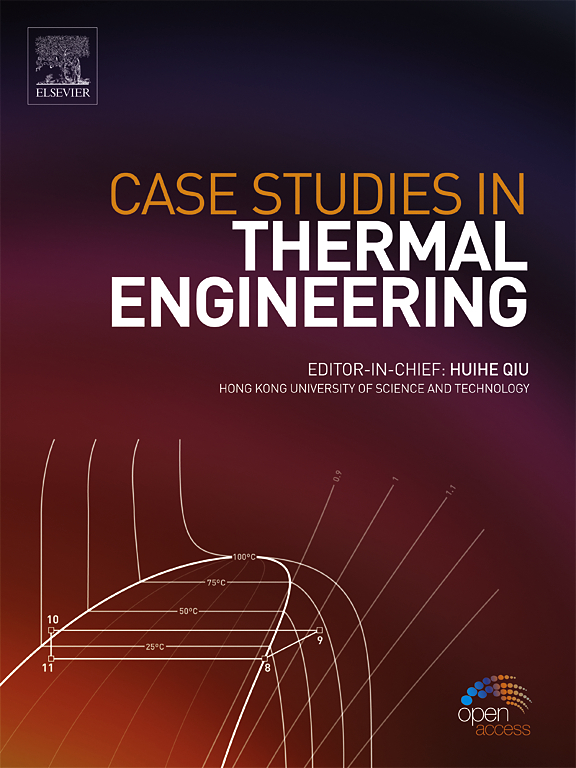Heat exchanger control: Performance of thermodynamics-based geometrical vs classical PID controllers
IF 6.4
2区 工程技术
Q1 THERMODYNAMICS
引用次数: 0
Abstract
In this communication, a control problem based on thermodynamic principles is developed to control the output temperature of a heat exchanger in an experimental setup. The system is controlled through a nonlinear output error, which is proportional to the total entropy production within the heat exchanger. A lumped-parameter model of the heat exchanger allows to define the thermodynamic control scheme, with geometric control principles, a high-gain observer and an anti-windup scheme, which provides robustness against parametric uncertainties and disturbances. To make a comparison with classical control schemes, a Ziegler–Nichols PID controller was tuned for a First Order Plus Dead Time plant approximation. The experimental setup used a National Instruments Compact FieldPoint controller, and the control scheme was programmed in a LabVIEW interface. The performance of the proposed controller was tested under two criteria: energetic performance and total tracking control error. The results show that the classical controller has a better energy-saving performance, while the thermodynamic controller has a better tracking performance, making it more suitable for applications where temperature control needs to be more precise.
热交换器控制:基于热力学的几何与经典PID控制器的性能
本文提出了一个基于热力学原理的控制问题,用于控制实验装置中热交换器的输出温度。系统通过非线性输出误差进行控制,该非线性输出误差与热交换器内的总熵产生成正比。换热器的集总参数模型允许定义热力学控制方案,具有几何控制原理,高增益观测器和抗绕组方案,该方案提供了对参数不确定性和干扰的鲁棒性。为了与经典控制方案进行比较,Ziegler-Nichols PID控制器被调谐为一阶加死时间植物逼近。实验装置采用美国国家仪器公司的Compact FieldPoint控制器,并在LabVIEW界面上编写了控制方案。根据能量性能和总跟踪控制误差两个指标对所提控制器的性能进行了测试。结果表明,经典控制器具有更好的节能性能,而热力学控制器具有更好的跟踪性能,使其更适合温度控制需要更精确的应用。
本文章由计算机程序翻译,如有差异,请以英文原文为准。
求助全文
约1分钟内获得全文
求助全文
来源期刊

Case Studies in Thermal Engineering
Chemical Engineering-Fluid Flow and Transfer Processes
CiteScore
8.60
自引率
11.80%
发文量
812
审稿时长
76 days
期刊介绍:
Case Studies in Thermal Engineering provides a forum for the rapid publication of short, structured Case Studies in Thermal Engineering and related Short Communications. It provides an essential compendium of case studies for researchers and practitioners in the field of thermal engineering and others who are interested in aspects of thermal engineering cases that could affect other engineering processes. The journal not only publishes new and novel case studies, but also provides a forum for the publication of high quality descriptions of classic thermal engineering problems. The scope of the journal includes case studies of thermal engineering problems in components, devices and systems using existing experimental and numerical techniques in the areas of mechanical, aerospace, chemical, medical, thermal management for electronics, heat exchangers, regeneration, solar thermal energy, thermal storage, building energy conservation, and power generation. Case studies of thermal problems in other areas will also be considered.
 求助内容:
求助内容: 应助结果提醒方式:
应助结果提醒方式:


